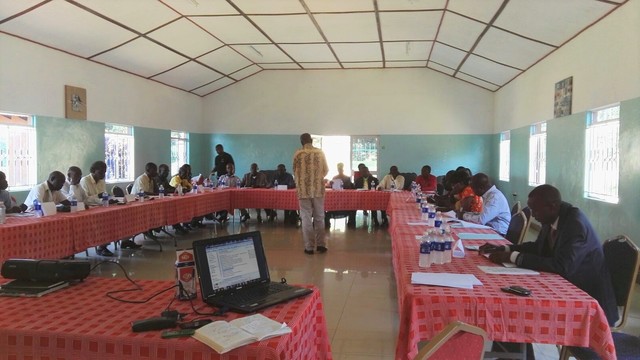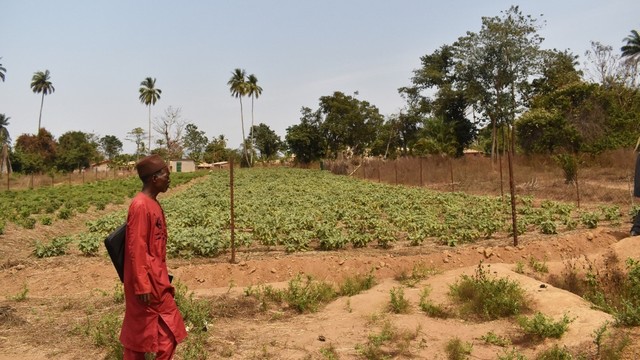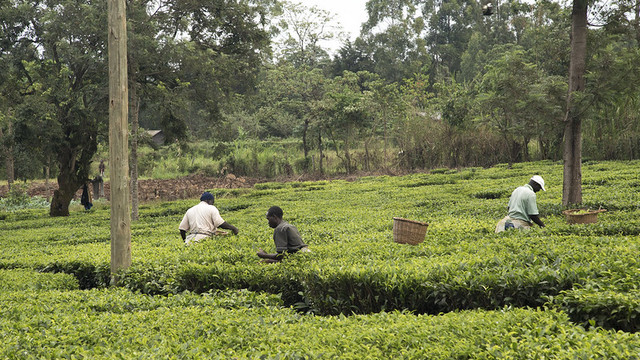Open letter to Bill Gates on African land acquisitions
IIED's director Dr Camillla Toulmin, responds to comments Bill Gates made about large-scale land acquisitions in a recent interview.
IIED's director Dr Camillla Toulmin, responds to comments Bill Gates made about large-scale land acquisitions in a recent interview.
11 February 2011
Dear Mr Gates,
I was very interested to read your Annual Letter and congratulate you and the Bill and Melinda Gates Foundation for the far-sighted investments you have made in health and agricultural development.
In your interview this week on AllAfrica.Com, you replied to a question about IIED's recent report Land deals in Africa: What is in the contracts?, by saying it would be too bad if some of this investment was held back because of Western groups' ways of looking at things, and that the inflow of capital should not be viewed purely through Western eyes.
IIED colleagues would agree with you that inward investment has the potential to bring significant benefits to growth in agricultural productivity and rural incomes in Africa. Equally, you are absolutely right that it is not for Western groups to tell African people whether they should accept inward investment, for agriculture or anything else.
But as our research shows, the problem so far is that very few people in these countries have been able to see the contracts that have been negotiated. The lack of clarity, large areas of land involved, long term leases and questions around compensation for the displaced all raise questions about who wins and who loses from these deals, as currently designed. But, as the report argues, it does not have to be like this.
Contract farming or joint ventures with local farmers offer a different investment model (others are described in our earlier report Alternatives to land acquisitions). Far from trying to push a "Western agenda", IIED works closely with partners in a range of African countries, who generate the perspectives and evidence on which our reports are based. They are calling for greater scrutiny of these deals.
In Mali, farmer organisations have been calling for a moratorium on large scale land allocations, and have reminded the government that all land, water, forests and natural resources constitute national assets for all citizens (see below for details of the farmers' Kolongo declaration).
Mr Tiébilé Dramé, leader of the PARENA party in Mali, has invited His Excellency President Touré to publish the list of those who have acquired land in the irrigable area, and the amounts allotted to each, along with the contracts, letters of agreement and conditions surrounding these leases (see below).
The haste with which these deals are being made has meant important environmental issues have not been taken into account, such as the combined downstream impacts of water taken off the River Niger on the enormously valuable inland Niger Delta in central Mali on which millions of people depend.
Transparency is called for to ensure that investors undertake their contractual obligations, rather than engage in speculation over land which does not belong to them.
Given the enormous respect in which you and the Bill and Melinda Gates Foundation are held, you can indeed "help make the case for the world's poorest people" because of the access you have to world leaders.
Your voice and engagement could help transform the benefits promised by this much-needed investment, by encouraging governments to open up debate around how best to use each nation's soils and water, for the long term benefit of its citizens.
Would you be ready to offer your help in opening up national debate on agricultural investment deals so they can meet the needs of smallholder farmers, who have been at the heart of your agricultural development strategy?
Best wishes
Camilla Toulmin, Director IIED



